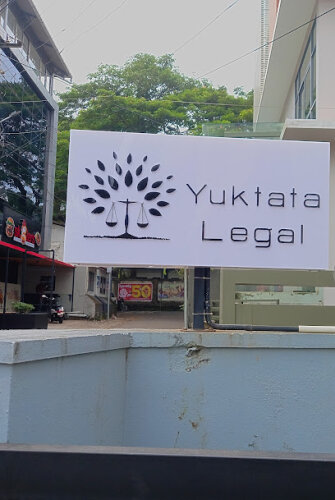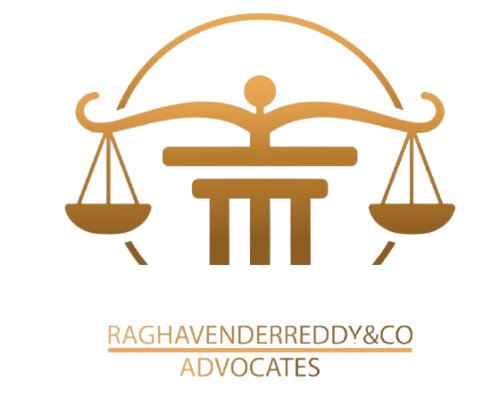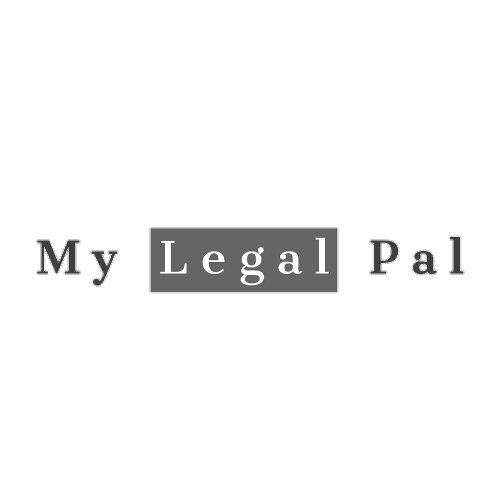Best FDA Law Lawyers in India
Share your needs with us, get contacted by law firms.
Free. Takes 2 min.
Or refine your search by selecting a city:
List of the best lawyers in India
About FDA Law in India
FDA Law in India refers to the legal framework that regulates food, drugs, cosmetics, and medical devices to ensure their safety, efficacy, and quality. The term "FDA" commonly alludes to the Food and Drug Administration in the United States. In India, the corresponding authorities include the Central Drugs Standard Control Organization (CDSCO) and the Food Safety and Standards Authority of India (FSSAI). FDA Law establishes standards for the production, distribution, sale, and import of these products, aiming to protect public health by preventing unsafe, substandard, or misbranded items from reaching consumers.
Why You May Need a Lawyer
Engaging a lawyer with expertise in FDA Law can be crucial in a variety of situations. Common scenarios where legal help may be required include:
- Launching a new food product, drug, or medical device in the Indian market
- Navigating the regulatory approval processes for manufacturing and marketing licenses
- Dealing with product recalls, quality control violations, or compliance failures
- Challenging government orders, such as product bans or seizure notices
- Understanding complex labeling and packaging requirements
- Defending against legal actions or compliance enforcement by regulatory authorities
- Handling import and export restrictions related to food, drugs, or medical devices
- Ensuring ongoing compliance with evolving regulatory standards
Local Laws Overview
FDA Law in India is governed by several key pieces of legislation and regulatory bodies:
- The Drugs and Cosmetics Act, 1940 and Rules - Regulates the import, manufacture, distribution, and sale of drugs and cosmetics.
- The Food Safety and Standards Act, 2006 - Consolidates various laws relating to food and establishes the FSSAI to set science-based standards.
- The Medical Devices Rules, 2017 - Provides specific regulations for medical devices and in vitro diagnostics.
- Import and Export Regulations - Overseen by the CDSCO and other relevant authorities, these laws control the cross-border movement of regulated products.
- State-level Drug Control Administrations - Work in tandem with central authorities for regional regulatory enforcement.
These laws impose strict criteria for product approval, licensing, labeling, advertising, and recall mechanisms. Non-compliance can result in severe penalties, including fines, imprisonment, and product seizures.
Frequently Asked Questions
What is the role of CDSCO in India?
The Central Drugs Standard Control Organization (CDSCO) is the main regulatory authority responsible for approving new drugs, clinical trials, regulating imports, and overseeing medical devices in India.
What types of products require approval under FDA Law in India?
Drugs, medical devices, cosmetics, and food products all require regulatory approvals, registration, or compliance with relevant safety and quality standards before they can be marketed in India.
How long does it take to get regulatory approval for a new drug in India?
Approval timelines can vary depending on the complexity of the product and the completeness of the documentation but generally range from a few months to over a year.
Are imported drugs and devices subject to additional regulations?
Yes, imported products must comply with Indian regulations, require import licenses, and must be registered with the CDSCO before they can be marketed in India.
What are the main labeling requirements for food and drug products?
Labeling must include accurate product information, manufacturing and expiry dates, batch numbers, license details, and comply with specific standards set by FSSAI or CDSCO.
Can non-compliance lead to criminal liability?
Yes, violations of FDA Law in India can lead to criminal prosecution, including fines and imprisonment, particularly in cases involving misbranding, adulteration, or public health hazards.
What are the procedures for product recall?
Manufacturers must have recall procedures in place and notify regulatory authorities. The authorities may also mandate recalls if they find products unsafe or non-compliant.
Is it mandatory to conduct clinical trials in India before drug approval?
Most new drugs require clinical trials in India, though there can be exceptions for drugs already approved in other jurisdictions under specified conditions.
Can I appeal a regulatory decision taken by the CDSCO or FSSAI?
Yes, there are provisions to appeal or seek review of regulatory actions, either before higher regulatory bodies or through appropriate legal forums like courts or tribunals.
How can a legal expert help in the FDA approval process?
A legal expert can help interpret regulations, prepare and review documentation, ensure compliance, manage communication with authorities, and represent you in legal proceedings if needed.
Additional Resources
If you require further information or guidance, the following organizations and resources can be helpful:
- Central Drugs Standard Control Organization (CDSCO)
- Food Safety and Standards Authority of India (FSSAI)
- State Drug Control Administrations
- Indian Pharmacopoeia Commission
- Department of Pharmaceuticals, Government of India
- Bureau of Indian Standards (BIS) for specific food and device standards
These bodies regularly publish guidelines and updates regarding regulatory requirements.
Next Steps
If you are facing a legal issue or need regulatory guidance under FDA Law in India, consider the following steps:
- Identify the specific regulatory authority relevant to your issue (CDSCO, FSSAI, or state body)
- Gather all relevant documentation, licenses, and certificates
- Consult a qualified lawyer with experience in food, drug, or device regulations in India
- Ensure that your lawyer reviews your compliance systems and proposed actions before engaging with authorities
- Stay updated with any changes to relevant laws and guidelines that may impact your business or product
Seeking timely legal advice can help you avoid penalties, streamline regulatory approvals, and preserve your reputation in the industry.
Lawzana helps you find the best lawyers and law firms in India through a curated and pre-screened list of qualified legal professionals. Our platform offers rankings and detailed profiles of attorneys and law firms, allowing you to compare based on practice areas, including FDA Law, experience, and client feedback.
Each profile includes a description of the firm's areas of practice, client reviews, team members and partners, year of establishment, spoken languages, office locations, contact information, social media presence, and any published articles or resources. Most firms on our platform speak English and are experienced in both local and international legal matters.
Get a quote from top-rated law firms in India — quickly, securely, and without unnecessary hassle.
Disclaimer:
The information provided on this page is for general informational purposes only and does not constitute legal advice. While we strive to ensure the accuracy and relevance of the content, legal information may change over time, and interpretations of the law can vary. You should always consult with a qualified legal professional for advice specific to your situation.
We disclaim all liability for actions taken or not taken based on the content of this page. If you believe any information is incorrect or outdated, please contact us, and we will review and update it where appropriate.
Browse fda law law firms by city in India
Refine your search by selecting a city.

















